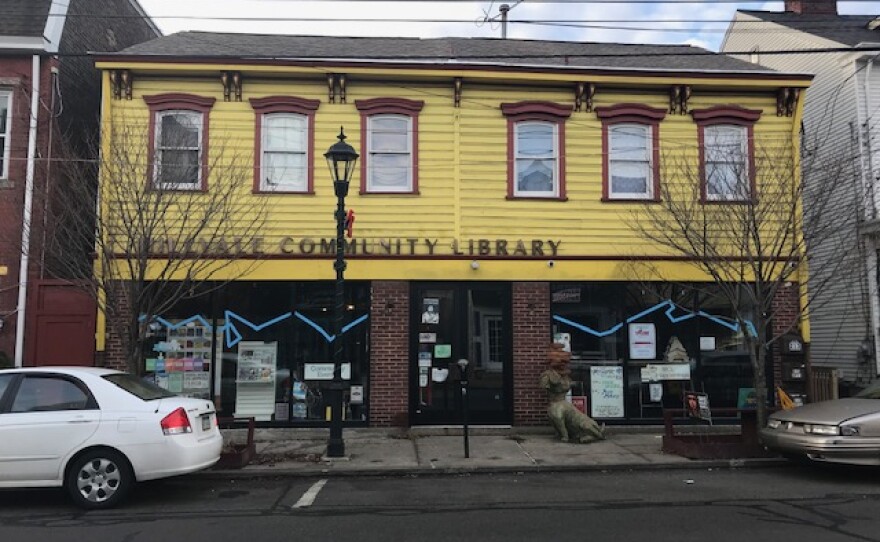Everybody should have a few tools around the house – like a crescent wrench and a Phillips-head screwdriver.
But what about tools too big to store or too expensive to buy – or that you’ll only need once, or once in a while?
For that, there's Millvale’s Maria Mongelluzzo Tool Lending Library. It’s a project of the Millvale Community Library that started in June and now has a catalog of more than 350 tools and sets of tools, from measuring tapes and extension cords to power saws and wheelbarrows.
The library is located at 213 Grant Ave. in Millvale. It's open Tuesday from 6 - 8 p.m., and Saturdays and Sundays from 10 a.m. - 12 p.m.
Anyone with a card for any library in Allegheny County can use the tool library. The tools available run the gamut, says tool library administrator Dan Malakoff.
“We have Shop Vacs, we have a blower in case you need to dry something out,” said Malakoff. “We have a carpet-shampooer. And then we have power tools, circular saws, routers, drills, a wet-dry saw.”
There are also extension ladders; yard and garden tools including shovels, tampers, and a post-hole digger; and tools for fixing cars and bicycles. A popular tool so far has been a pressure-washer, often used for cleaning siding, said Malakoff. (Off-limits per the library's insurance company: chainsaws and scaffolding.)
The tool library is located in the Millvale Community Library’s basement. It is open two hours daily on Fridays and Saturdays, and two hours on Tuesday evenings. The catalog is searchable, just as with books and movies. Borrowing more expensive tools might require a refundable deposit. Users can check out as many as five tools for up to a week, with renewals possible.

Malakoff said that while nonprofit group Grow Pittsburgh has its own member-based gardening-tool library, the Millvale Library appears to be the only one in the region that loans all types of tools.
The library has been used by everyone from its neighbors to area tradesmen, says Malakoff. But while its utilitarian value is obvious, there are other benefits.
“We see the tool library sort of contributing to sustainability, so many tools are bought and then they’re used once and they just sit, or then they’re thrown out and they go to the landfill,” says Malakoff. “We see it as a way of saving the community money, and also sort of reducing waste. We see it also as a community-building sort of project.”
The tool library is named for the Americorps volunteer who came up with the idea. The library has been promoting itself at farmers’ markets, and is still taking tool donations, Malakoff said.







